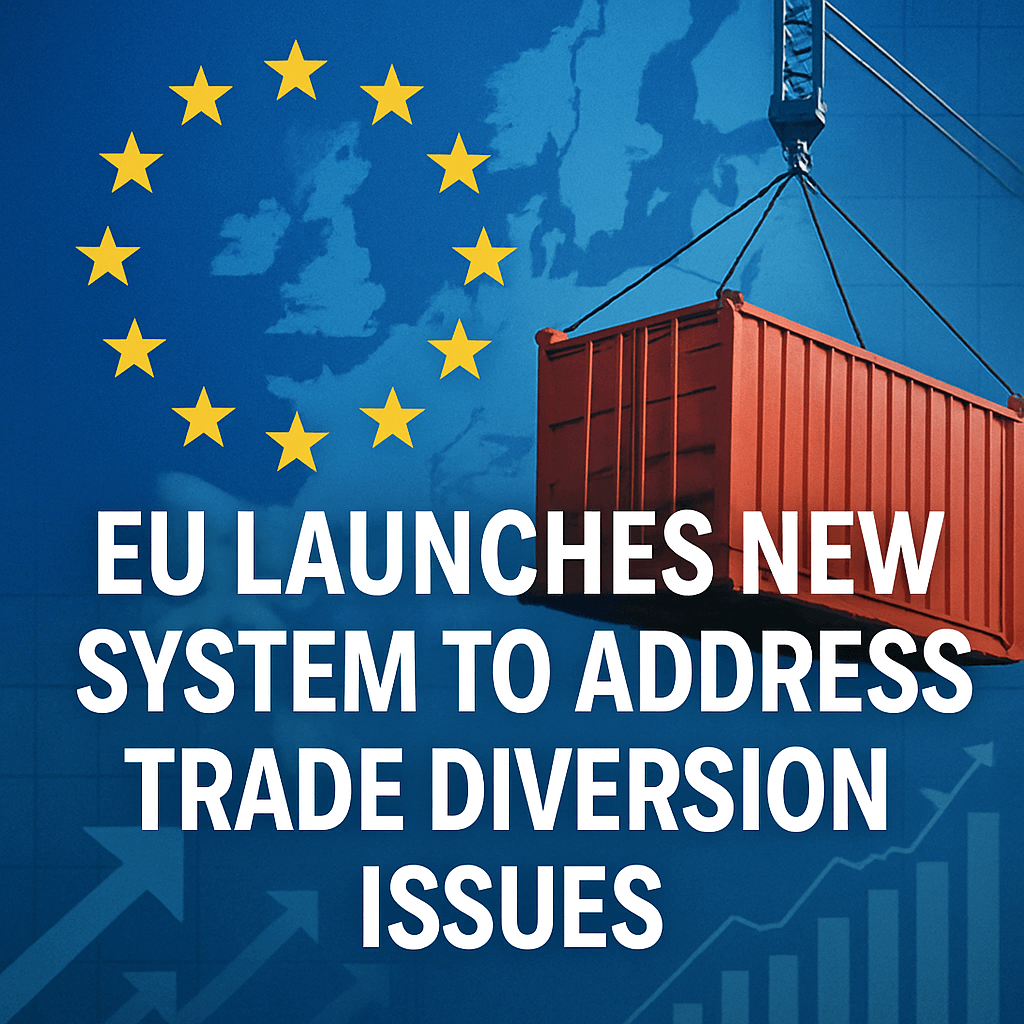EU Launches New System to Address Trade Diversion Issues

The European Commission announced a significant initiative on Thursday aimed at enhancing the monitoring of imports arriving in the European Union (EU). The new surveillance system, focused on leveraging customs data, is designed to identify surges in imports that may be a consequence of recent US tariffs impacting global trade.
Enhanced Import Monitoring System
EU Trade Commissioner Maroš Šefčovič emphasized the necessity of this development by stating, “Recent turbulence in the global trading system has increased the risk of harmful trade diversion.” He noted that products originally intended for high tariff markets may redirect to the European market, creating potential economic challenges.
The new import surveillance tool will integrate data from EU member states and industries to better identify unusual spikes in imported goods. This system is particularly essential in light of the ongoing trade tensions between the US and China, which have reshaped traditional trade flows.
Creating a Task Force
Subsequent to this announcement, the Commission revealed plans to establish a dedicated task force tasked with monitoring these variations in imports, beginning January 1, 2025. This proactive approach is designed to preemptively address trade imbalances and protect the EU market from potential disruptions.
Concerns Regarding Chinese Exports
One of the main concerns surrounding this new initiative is the potential for product diversion from China. In April 2020, the US imposed hefty tariffs of up to 145% on various Chinese goods amidst escalating trade tensions. However, by May 2020, the situation eased slightly, with tariffs being reduced to 30% following a temporary truce between the economic superpowers.
Current Trade Dynamics
According to the latest data from the Chinese Customs Authority, there was a noteworthy boost in exports from China to the EU, with an 8.2% increase observed in April 2025 compared to April 2024. This trend varied significantly among EU member states:
- Germany: +20.4%
- Netherlands: +5.6%
- Italy: +4.7%
- France: +2.6%
Conversely, Chinese exports to the US experienced a dramatic decline of 20% in the same time frame, indicating a potential redirection of trade flows towards the EU. Additionally, Chinese exports to Southeast Asian countries saw significant increases, with Thailand and Indonesia reporting growths of 28% and 37%, respectively.
Mechanisms for Trade Protection
To safeguard against excessive trade diversion, the EU has several tools at its disposal. The Commission may invoke safeguards that allow for temporary limits on specific imports when they threaten to distort market conditions. Additionally, anti-dumping duties can be implemented if evidence suggests that a foreign country is exporting goods below domestic pricing standards, ensuring a level playing field for European producers.
Expert Insight on Market Fluctuations
Trade expert Simon Evenett from the St Gallen Endowment for Prosperity Through Trade provided valuable insight into these trends. He reported accelerating price declines between January and April 2025 for various Chinese products, particularly in the automotive and petroleum sectors. Furthermore, Evenett noted that prices for medicines and ships exported by China began to decline during the same period, suggesting broader implications for global supply chains.
Looking Ahead: Strategic Implications
As the EU implements this robust import surveillance system, the broader geopolitical context remains fluid. The EU’s ability to effectively monitor and react to changes in global trade dynamics will be crucial not only for protecting its market interests but also for maintaining competitive parity with major trade partners. With China and the US continuing their intricate tariff negotiations, the EU’s market strategy may become increasingly significant as a counterbalance in global trade.
“The integration of comprehensive data from both member states and industries will bolster the EU’s capacity to respond to and mitigate the risks associated with import surges,” said Šefčovič.
Source: euronews